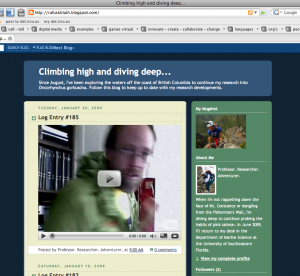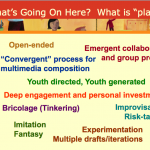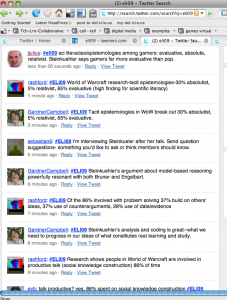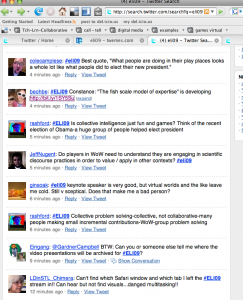Over the span of a few short days, have gone from reading a “7 things” brief about ARGs (alternate reality games) which mentioned in rather detached terms that they “offer engaging content” and “new opportunities for collaborative learning” …
… to attending a pre-conference workshop that explored elements of play ….
… to becoming a participant as an ARG unfolds here at the conference.
It turns out this mystery fellow Rufus has a blog … 
and a website, and a Twitter account … and there on the table at the back of the room is another (non-web-based) artifact that is obviously also related in some way …
Conference participants are finding their own way through all of this, some more actively engaged, some less so, and a wiki has emerged from among a number of options as a place to compile what has been found to date.
Also found this blog post, a reference from the workshop wiki, which gets at some interesting elements re: philosophy.
In the case of Rufus, no one told us what to do, we just dove in. It’s an interesting mix of lots of pre-planning (the team promised to post the coordination docs by week’s end) combined with then opening it up and letting it take on a life of its own.
There’s a puzzle, which creates an itch, which leads you down the first of many rabbit holes … and the clues and content that people are collecting and sharing is bubbling up all over the place, as yet another layer added to this very interesting event.
Definitely not the same as just reading about it.


